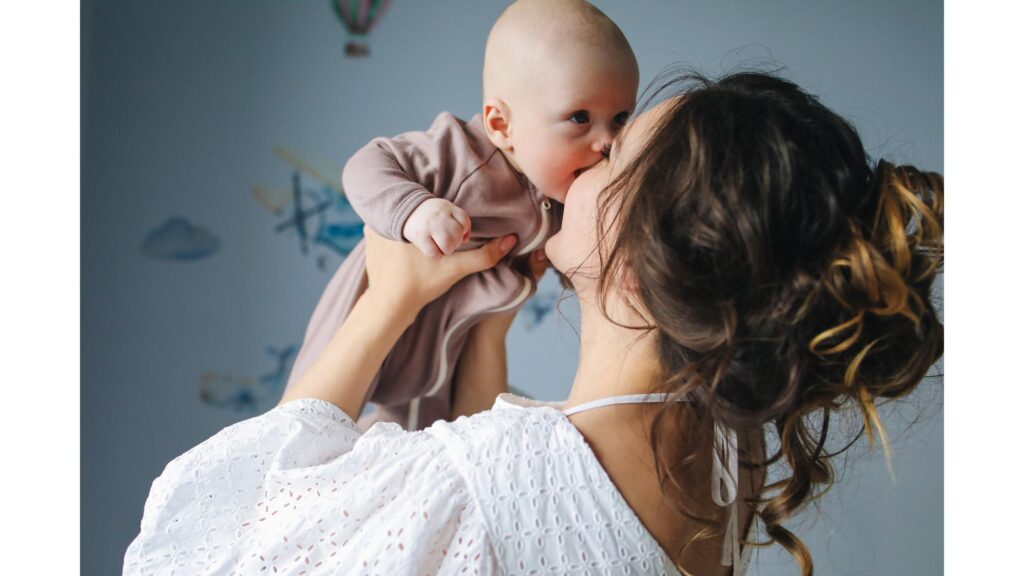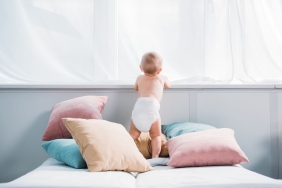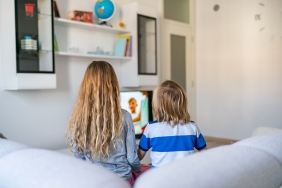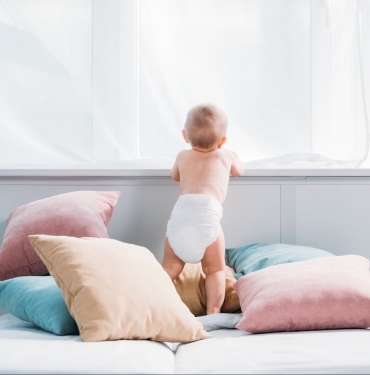When children start sleeping without diapers at night, it is an important milestone for parents. However, every child is different and becomes ready for this process at different times. In this article, we will take a pedagogical approach to understanding the process by which children begin to sleep diaper-free at night.

1. Developmental Stages and Night Toilet Training
The process of children acquiring toilet habits is closely related to their developmental stages. Usually between the ages of 2 and 3, children become ready for toilet training. However, for some children this process may occur earlier or later.
According to Jean Piaget's theory of cognitive development, children are in the "sensoromotor" phase during this period. This stage refers to the period in which children develop sensory perceptions and motor skills. When children are physically ready to use the toilet, parents should support this process.
Source: “Jean Piaget's Theory of Cognitive Development” – Simply Psychology
2. Signs of Children's Readiness
There are some signs that indicate that children are ready to start sleeping without a diaper at night. Some of these signs are:
- Decreased amount of urination during sleep,
- Development of the ability to hold the toilet,
- Feeling uncomfortable waking up from sleep and wetting the bed,
- Desire to go to the toilet when waking up instead of wetting the bed while sleeping.
If your child shows a few of these signs, it may indicate that he or she is ready to start sleeping diaper-free at night.
Source: “Toilet Training Readiness” – Healthy Children
3. Pedagogical Approaches
a. Being Patient and Understanding:
Children develop at their own pace and each child may experience a different process. It is important for parents to be patient and understanding. Pay attention to your child's needs and do not force him. Pressure can negatively affect the toilet training process.
b. Giving Positive Advice:
Appreciate your child's achievements and efforts. Positive words and praise increase the child's self-confidence and make the process more positive.
c. Set an example:
It is important for parents to set an example for children about using the toilet. Children often imitate their parents. Therefore, the habit of using the toilet can be improved by modeling behavior of parents.
D. Creating a Night Routine:
Creating a routine for nighttime potty training can help your child start sleeping diaper-free at night. For example, it would be useful to make arrangements such as going to the toilet before sleeping and limiting fluid intake.
Source: “Toilet Training: Common Questions and Concerns” – Mayo Clinic
4. Coping Strategies
There may be some difficulties you may encounter in the process of starting to sleep without a diaper at night. Strategies for dealing with these challenges may include:
a. Considering Accidents Normal:
Remember that accidents happen and don't let your child blame himself. Accidents are a natural part of this process, and support your child to calm his or her concerns.
b. Do not go to the toilet at night without permission:
Do not wake your child to check if he/she has gone to the toilet at night. This can disrupt night sleep and delay toilet habit acquisition.
c. Don't Go Back to Diaper Use:
During the toilet training process, some families may revert to using diapers to prevent accidents. However, this may hinder your child's progress and cause confusion. So, once you start, continue the process and allow your child to understand his own body signals.
D. Do not force the toilet at night:
If you feel like your child isn't ready to start sleeping diaper-free at night, don't force the process. Acting hastily can make your child's toilet training process more stressful and cause resistance.
5. Creating a Safe and Comfortable Environment for Sleeping
To support your child in starting to sleep diaper-free at night, make sure the sleeping environment is safe and comfortable. Elements such as a comfortable bed, a favorite blanket or toy, and a light night lamp will make your child feel safe.
6. Consult an Expert
The toilet training process can sometimes encounter unexpected challenges. If your child's process of starting to sleep without a diaper at night has been going on for a long time and you are having problems, it would be useful to consult a child development specialist. Experts can evaluate your child's individual needs and offer you a customized approach.
When children start sleeping without diapers at night, it is an important milestone in child development. With a pedagogical approach, it is important to have a patient and understanding attitude by understanding your child's individual developmental stages and needs. Understanding that accidents are normal and supporting your child in a positive way will make the process more positive. If you are experiencing long-lasting difficulties, getting help from an expert will help your child have a healthier toilet training process.
resources
- Jean Piaget's Theory of Cognitive Development. Simply Psychology. [https://www.simplypsychology.org/piaget.html]
- Toilet Training Readiness. Healthy Children. [https://www.healthychildren.org/English/ages-stages/toddler/toilet-training/Pages/Toilet-Training-Readiness.aspx]
- Toilet Training: Common Questions and Concerns. Mayo Clinic. [https://www.mayoclinic.org/healthy-lifestyle/infant-and-toddler-health/expert-answers/toilet-training/faq-20457533]
- Toilet Training Tips: Nighttime. American Academy of Pediatrics. [https://www.healthychildren.org/English/ages-stages/toddler/toilet-training/Pages/Toilet-Training-Tips-Nighttime.aspx]
(Note: This article has been prepared with information taken from reliable sources on education and child development. However, children are individual and each is unique. Therefore, it is recommended that you also seek support from an expert for your child's special needs and situation.)

















